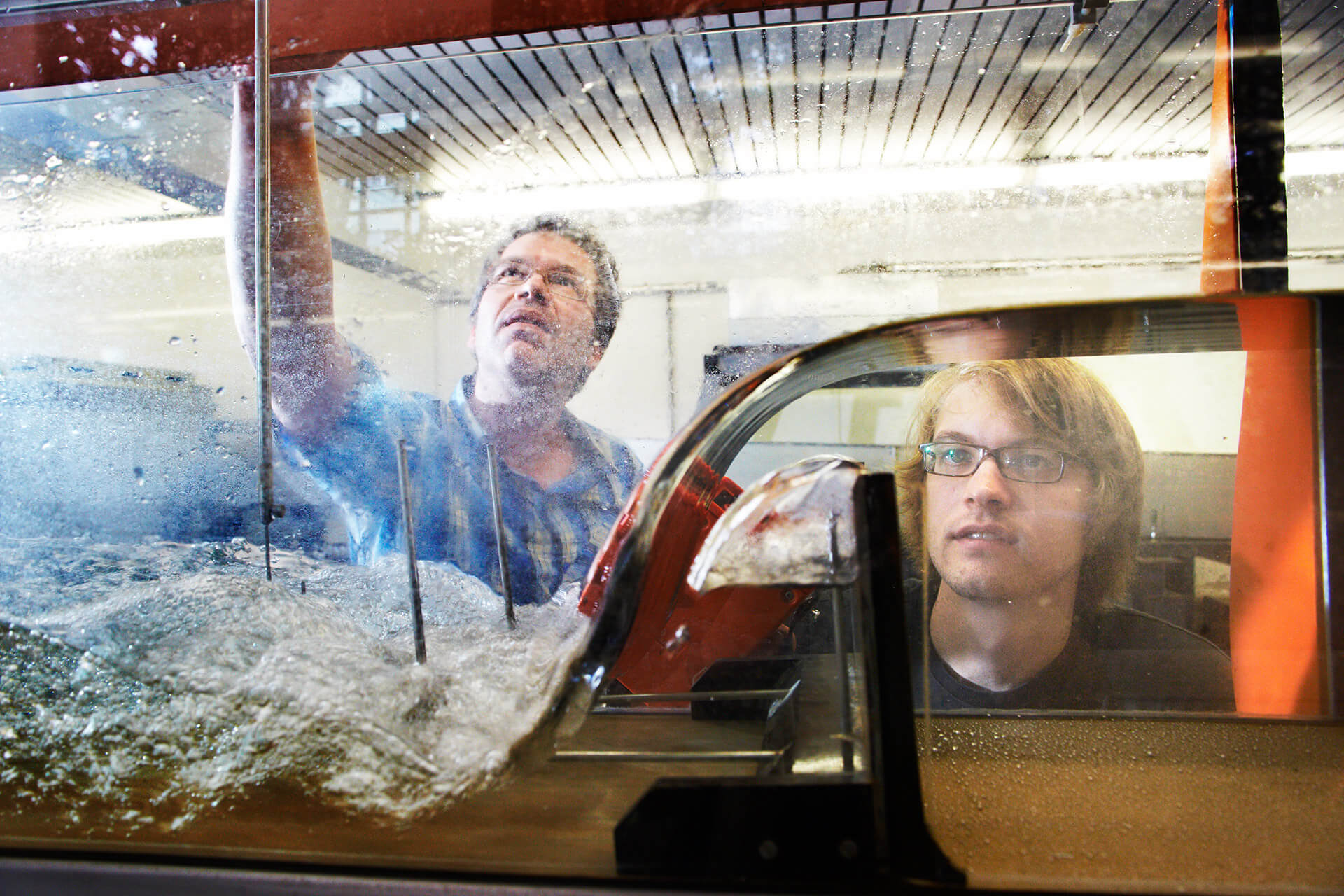Key research priorities in our research profile
Research activities are grouped into three core areas and one potential area:
In particular, this will expand the unique selling points in various research fields, for instance '3D measurement technology', 'Information technologies with applications in the humanities, design and media', 'Digital applications in industry and society' and 'Digital planning and manufacturing'.
The main objectives our research profile are to expand internal cooperation, to cultivate and maintain existing external collaborations and, in particular, to expand existing networks by acquiring new partners to collaborate with. With its new research profile proposal, Mainz University of Applied Sciences intends to further expand the path it has already taken beyond 2018 with regard to intensifying its networking within the university itself, in Mainz, within the Mainz Science Alliance and also with regard to international cooperation with foreign partner universities. The Institute for Spatial Information and Surveying Technology (i3mainz) has made a decisive contribution to the research profile of Mainz University of Applied Sciences. The internationally recognized institute is one of Germany's two outstanding institutes in the field of space-related information and surveying technology and has undergone dynamic development. It is the most successful institute in terms of publicly acquired third-party funding (the Federal Ministry of Education and Research (BMBF), the Federal Ministry for Economic Affairs and Energy (BMWi), the German Research Foundation (DFG), the EU) at Mainz University of Applied Sciences. From 2012 to 2016 the i3mainz led an EU-funded international project on the targeted application of spatial metrology for the humanities with 60 partners from 28 countries. Together with the two institutes of the School of Design, the Institute for Media Design (img) and the Design Laboratory Gutenberg, some of the research projects are implemented in a media- and design-oriented manner. The research work of these two institutes focuses on the communication of design, multidimensional visualization and time-based design solutions. The regular national and international design awards testify to the quality of the work.
- Spatial information and measurement technology
- Innovative technologies and applications in industry and society
- Information technologies in the humanities, design and media
- Digital planning and production
In particular, this will expand the unique selling points in various research fields, for instance '3D measurement technology', 'Information technologies with applications in the humanities, design and media', 'Digital applications in industry and society' and 'Digital planning and manufacturing'.
The main objectives our research profile are to expand internal cooperation, to cultivate and maintain existing external collaborations and, in particular, to expand existing networks by acquiring new partners to collaborate with. With its new research profile proposal, Mainz University of Applied Sciences intends to further expand the path it has already taken beyond 2018 with regard to intensifying its networking within the university itself, in Mainz, within the Mainz Science Alliance and also with regard to international cooperation with foreign partner universities. The Institute for Spatial Information and Surveying Technology (i3mainz) has made a decisive contribution to the research profile of Mainz University of Applied Sciences. The internationally recognized institute is one of Germany's two outstanding institutes in the field of space-related information and surveying technology and has undergone dynamic development. It is the most successful institute in terms of publicly acquired third-party funding (the Federal Ministry of Education and Research (BMBF), the Federal Ministry for Economic Affairs and Energy (BMWi), the German Research Foundation (DFG), the EU) at Mainz University of Applied Sciences. From 2012 to 2016 the i3mainz led an EU-funded international project on the targeted application of spatial metrology for the humanities with 60 partners from 28 countries. Together with the two institutes of the School of Design, the Institute for Media Design (img) and the Design Laboratory Gutenberg, some of the research projects are implemented in a media- and design-oriented manner. The research work of these two institutes focuses on the communication of design, multidimensional visualization and time-based design solutions. The regular national and international design awards testify to the quality of the work.
